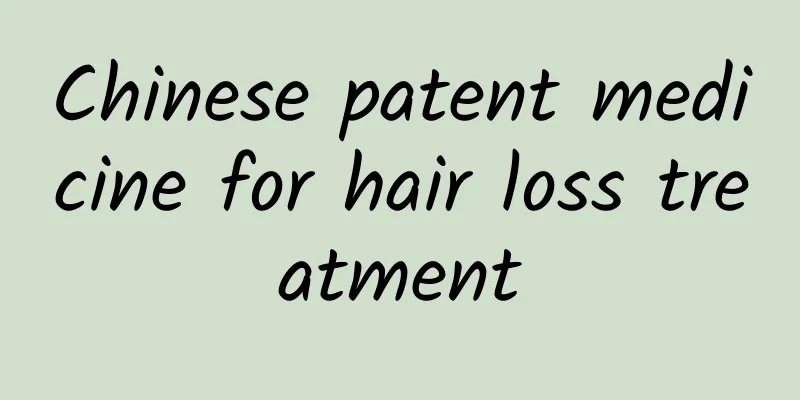Song of the recipe of Suzi Jiangqi Decoction

|
There are many diseases that can be treated with Suzi Jiangqi Decoction, such as chronic bronchitis, chronic obstructive pulmonary disease, and cor pulmonale in Western medicine. The use of Suzi Jiangqi Decoction in traditional Chinese medicine is mainly based on syndrome differentiation and treatment, and the medication needs to be used according to the patient's specific condition. In ancient times, in order to better use the Suzi Jiangqi Decoction, a recipe song for the Suzi Jiangqi Decoction was made. Let’s take a detailed look at it below. 【Prescription Rhyme】 The prescription of perilla seed for descending qi and removing phlegm, Atractylodes macrocephala, Radix scutellariae, jujube and ginger; cinnamon bark, angelica root and Radix Angelicae Pubescentis for absorbing qi and regulating blood, and cures asthma caused by phlegm and asthenia in the upper body and lower body. [Explanation of the prescription] The syndrome treated by this prescription is caused by phlegm blocking the lungs and insufficient kidney yang. The characteristic of its pathogenesis is "fullness above and emptiness below". "Upper fullness" refers to the phlegm blocking the lungs, which prevents the lung qi from circulating smoothly, resulting in fullness and stuffiness in the chest, wheezing, coughing and excessive sputum; "lower emptiness" refers to the deficiency of kidney yang in the lower part, which manifests as lower back pain and weak legs, failure of the kidneys to absorb air, with more exhalation than inhalation, wheezing and shortness of breath, and failure of water to transform into qi, which causes water to overflow into phlegm and cause swelling. Although the syndrome of this prescription is characterized by upper fullness and lower emptiness, the upper fullness is the main symptom. Therefore, the treatment focuses on descending qi and relieving asthma, removing phlegm and relieving cough, while also taking the lower abdomen into consideration. In the formula, Perilla seed can reduce qi and relieve asthma, eliminate phlegm and relieve cough, and is the main medicine. Pinellia ternata dries dampness, resolves phlegm and reduces adverse effects; Magnolia officinalis descends Qi, relieves chest tightness and eliminates fullness; Peucedanum chinense descends Qi, removes phlegm and relieves cough. The three herbs assist Perilla seed in descending Qi, removing phlegm and relieving asthma, and they are all assistant herbs. The ruler and his subjects match well with each other to ensure effective governance. Cinnamon bark warms and nourishes the lower abdomen, absorbs qi and relieves asthma, thus treating lower deficiency; Angelica sinensis not only treats cough and shortness of breath, but also nourishes blood, nourishes the liver and moistens dryness, and together with cinnamon, it can increase the effect of warming and nourishing the lower deficiency; a little ginger and perilla leaves are added to dispel cold and open up the lungs, and together they serve as adjuvants. Licorice, jujube and middle regulating herbs are called guiding herbs. All the medicines are used together, taking into account both the symptoms and the root cause, treating both the upper and lower parts at the same time, but focusing on treating the upper part, so that the qi can be descended and the phlegm can be eliminated, and the wheezing and coughing will subside. The original book of this prescription notes that "one prescription contains one and a half liang of dried tangerine peel with the white part removed", which enhances the effect of regulating qi, drying dampness and removing phlegm. "Yi Fang Ji Jie" states: "One prescription contains agarwood but no cinnamon", so the effect of warming the kidney is reduced, while the effect of absorbing qi and relieving asthma is increased. This recipe was first recorded in Volume 7 of the Tang Dynasty's "Prescriptions for Emergencies Worth a Thousand Gold Pieces", and its original name was "Perilla Seed Soup". During the Baoqing period of the Song Dynasty, perilla leaves were added to this prescription and the name was changed to "Suzi Jiangqi Decoction" and it was included in the "Taiping Huimin Hejiju Fang". 【use】 1. Key points of syndrome differentiation: This prescription is commonly used to treat cough and wheezing caused by excessive phlegm and fullness in the upper body and emptiness in the lower body. The key points of diagnosis are chest fullness and stuffiness, thin white sputum, and white and slippery or greasy tongue coating. The prescription is warm and dry in nature, and is mainly used to descend qi and eliminate phlegm. It is not suitable for asthma and cough caused by lung and kidney yin deficiency, or asthma due to lung heat and phlegm. 2. Add or subtract: If the patient has excessive phlegm, cough, shortness of breath and difficulty sleeping, add agarwood to enhance its effect of descending qi and relieving asthma; if there are also external symptoms, add ephedra and apricot kernel to clear the lungs and relieve asthma, and disperse external evil; if there is also qi deficiency, add ginseng to replenish qi. 3. Modern application: This prescription is often used for chronic bronchitis, emphysema, bronchial asthma and other diseases caused by lung qi congestion. 【Literature Excerpt】 1. Original book indications: Volume 3 of Taiping Huimin Hejijufang: "It is used to treat male and female deficiency yang attack, qi not rising and falling, excess in the upper part and emptiness in the lower part, diaphragmatic obstruction with excessive phlegm, sore throat, cough, restlessness and drinking, dizziness, back pain and weak legs, limb fatigue, abdominal distension, (疒丂) acupuncture, cold and hot diarrhea, constipation, stagnation and obstruction of bowel movements, edema of limbs, and interference with diet. ” 2. Selected Prescriptions: Wang Ang's "Medical Prescriptions Collection and Explanation·Qi-Regulating Agents" states: "Perilla seed, Peucedanum chinense, Magnolia officinalis, Tangerine peel, and Pinellia tuber can all reduce the adverse Qi and remove phlegm. When Qi moves, phlegm moves. Several herbs can also release the exterior, which can relieve internal congestion and dissipate external cold. Angelica sinensis can moisten the blood, while Licorice root can soothe the middle. When the lower part is empty and the upper part is strong, cinnamon bark is used to guide the fire back to its origin." Volume 7 of Zhang Lu's Qianjin Fang Yanyi states: "Betriberi is caused by turbid qi attacking from above. Therefore, perilla seed, tangerine peel, peucedanum chinense, and magnolia bark are used to warm and descend qi; pinellia tuber and fresh ginger are used to remove phlegm and dampness; cinnamon heart and angelica root are used to warm and disperse stagnant blood; and licorice and jujube are used to harmonize the middle qi. The whole recipe is mainly used to descend and discharge adverse qi, so the Ju Fang recipe was renamed Suzi Jiangqi Decoction. Later generations used it to treat false yang attacking from above, excessive phlegm and salivation, and shortness of breath in the lungs. Taking it will calm the qi. It can be seen that the prescription should be appropriate, and there is no need to stick to the main treatment of any disease." |
<<: The efficacy and function of roasted pangolin powder
>>: Chinese medicine explains black face and white body
Recommend
What are the methods to remove acne and acne marks?
At that time, after staying up all night, my face...
Will high blood sugar cause dizziness and nausea?
With the development of the times, people's l...
What medicine is good for Norovirus
Norovirus often causes diarrhea in children, and ...
Treatment of myocardial damage
There is a saying that there are always more solu...
Aphrodisiac and kidney-tonifying recipes make men "vigorous and energetic"
With the improvement of living standards today, k...
It turns out that these are the 7 points to pay attention to when extracting teeth
Tooth extraction is something that many adults ha...
Flexible ureterolithotomy
Whether we can urinate normally is maintained by ...
Folk Herbal Medicine for Lowering Blood Sugar
Traditional Chinese medicine is very profound. Ge...
Gout hand and foot bath
Gout usually occurs in the joints, especially the...
How to choose a postpartum belly belt
After giving birth, women will find that they hav...
What is acupuncture therapy?
Acupuncture therapy first appeared in the "E...
The rusty nail pierced my foot and caused slight bleeding
After being pricked by an iron nail, try to squee...
What are the functions of deep-sea fish oil and what are the therapeutic effects of deep-sea fish oil?
EPA and DHA contained in fish oil belong to the Ω...
How to make a thick neck thinner
Unless caused by illness, a thick neck generally ...
What is proteinuria?
There are many common diseases in life, and colds...









